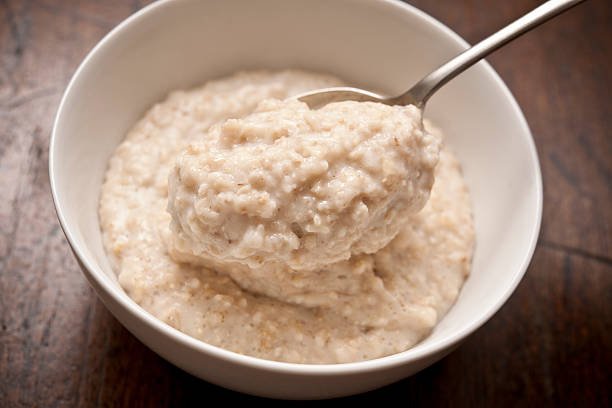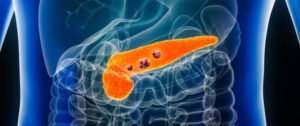
Five Principles of Diet After Colorectal Cancer Surgery! Recommendations For Liquid Food and Foods to Avoid
Since the large intestine is a digestive organ, the postoperative diet of colorectal cancer is closely related to the prognosis. Let us help you understand what to eat and how to choose a diet after colorectal cancer surgery.
Five principles and order of diet after colorectal cancer surgery
In order to reduce irritation to the gastrointestinal tract and accelerate wound healing, it is recommended to adopt a “progressive diet” after surgery. The order is: drink water → clear liquid diet → full liquid diet → semi-liquid diet → low-residue soft diet → general diet.

- Drink water
Liquid diets contain more water and the food is fluid, so you can distinguish between liquid, full-liquid and semi-liquid diets. For patients after colorectal cancer surgery, they must eat and drink more before surgery, so of course they need to drink more fluids after surgery. Under the guidance of doctors and personal therapists, patients can try to drink 30 c.c. of water every hour. If there is no discomfort, they can start a clear liquid diet. - Clear liquid diet
A clear liquid diet is defined as: food that is completely free of residue, does not produce gas or irritate the gastrointestinal tract after consumption, and is in a liquid state at room temperature. Clear liquid diet options include:
Clear liquid food recommendations
- Remove oil and clear soup
- Energy drink
- Rice soup
- Strain all fiber, pulp-free juices
- Clear ice
- Honey
- Syrup
A clear liquid diet does not provide adequate nutrients and should not be taken for more than 48 hours without additional nutritional supplements.
- Remove oil and clear soup
- All-liquid diet
A full liquid diet is also liquid at room temperature, but contains a small amount of fiber and is easy to digest. It is considered a diet with sufficient nutrition. Options for an all-liquid diet include:
Full liquid food recommendation
- Milk
- Soy milk
- juice
Meat, eggs, vegetables, seafood, etc. can be minced and cooked with starch into a semi-fluid state, and then broken into a fully liquid state with a food processor, such as chicken porridge, seafood porridge, etc., and the shape of the food or rice grains cannot be seen. .
When taking an all-liquid diet, remember to eat small and frequent meals, at least six meals a day, and choose ingredients that are smooth and easy to digest.
- Milk
- Semi-liquid diet
Semiliquid diet refers to cutting food into fine pieces or mincing it, then adding soup to cook it into semi-liquid liquid food, which can be swallowed with a little chewing. Options for a semi-liquid diet include:
Semi-liquid food recommendations
- Salty porridge
- Noodle soup
- Oatmeal
- Fish porridge
- Shredded Chicken Noodles
- Big braised noodles
- Pudding
- Chawanmushi
- Rice pudding
- Sesame paste
A semi-liquid diet also recommends small meals with frequent meals. It should be noted that in terms of food ingredients, fruits and vegetables that are too old or hard should be avoided, and meats containing gluten should not be eaten.
- Salty porridge
- Low residue soft diet
A low residue diet is to reduce the residue left in the gastrointestinal tract after food is digested. The purpose is to reduce the frequency of defecation and reduce the volume of feces, so that the gastrointestinal tract can be fully rested so that it can recover faster. Generally speaking, the daily intake of crude fiber is recommended to be less than 5 grams, or about 10 to 15 grams of dietary fiber.
Soft Diet is based on a balanced diet and chooses solid foods with soft texture. Use it with cooking methods that can easily soften food, such as steaming or boiling. Low-residue, soft-food options include:
Recommended low residue soft food
- Skinless, gluten-free, minced, boiled tender and lean meat
- Boiled eggs, steamed eggs, egg drop soup
- Processed soy products (such as tofu curds, dried tofu, tofu, soy milk)
- Refined starchy foods (e.g. rice, porridge, noodles, toast)
- Filtered vegetable juice
- Clear cake
- Skinless, gluten-free, minced, boiled tender and lean meat

Food to avoid shortly after colorectal cancer surgery
From a clear liquid diet to a low-residue soft diet, there are several directions:
- No dairy products (including: yogurt, Yakult or foods with added milk)
- Avoid unprocessed legumes (e.g. red beans, mung beans, soybeans, etc.)
- No unprocessed grains (such as brown rice, oats, corn, whole wheat bread, sweet potatoes or taro)
- Avoid high-fiber fruits and vegetables and processed fruits (for example: apples, tomatoes, watermelons, kiwis, dried quince, dried mango, dried guava)
- Fasting without crushed nuts
Avoid pan-frying, deep-frying, and roasting cooking methods
Doctors will encourage healthy Chinese people to eat more high-fiber and unprocessed foods, but for post-operative colorectal cancer patients, they should eat low-fiber and refined foods instead. This is because high-fiber and rough foods tend to rub our intestines, which may cause bleeding and slow down the process of wound healing.
In addition, cooking methods such as “frying, frying, and roasting” are not conducive to digestion and can cause irritation, which will increase the burden on the intestinal tract. As for foods such as beans and milk, avoid foods such as beans and dairy products because these foods are easy to produce gas. , causing flatulence and discomfort; dairy products can also easily cause diarrhea and interfere with the recovery of colorectal cancer patients, but processed soy products are not limited to this.
A moderate fiber-containing diet can promote postoperative health recovery and anti-inflammatory effects, avoid excessive intake of food residues and remain in the intestines, reduce defecation volume, and reduce gastrointestinal function to achieve true recovery.
Nutritional supplementation for colorectal cancer patients after entering the treatment course
After colorectal cancer surgery, you may still need to complete chemotherapy, radiotherapy and other treatments. At this time, you need to have sufficient physical strength, so you need sufficient nutrients. Colorectal cancer patients need to consume 200 to 500 more calories, have a more balanced diet, and consume higher amounts of protein and calories than the general healthy population.
Clinically, 1/3 of colorectal cancer patients die from infection due to malnutrition, which causes a decline in the immune system. Eat healthily and well so that the progress of your treatment will not be affected.
Fruit and vegetable diet to prevent recurrence of colorectal cancer
According to a report from the Dana-Farber Cancer Research Center (DFCI) affiliated with Harvard Medical School in Boston, USA, subjects who had undergone colorectal cancer surgery and chemotherapy were divided into two groups. One group was fed refined starchy foods (such as white toast). , pasta, etc.) and a Western-style diet with high fat content, while the other group was a Mediterranean diet rich in vegetables, fruits, beans, high-quality fats and proteins. A controlled experiment was conducted between the two. As a result, the recurrence rate of colorectal cancer in patients who mainly ate a Western-style diet was twice as high as that in the other group. In order to reduce the recurrence of cancer, a natural and balanced high-fiber diet is still the best choice.












